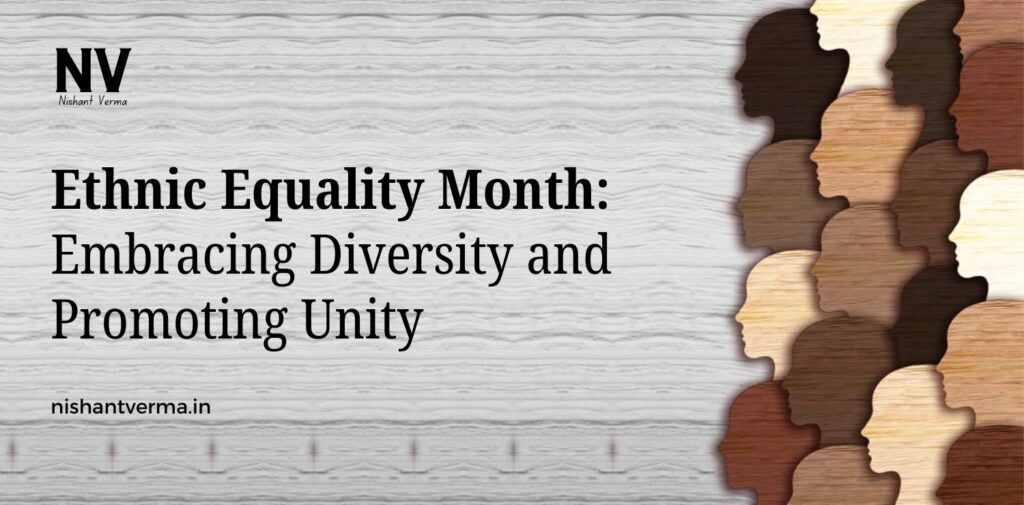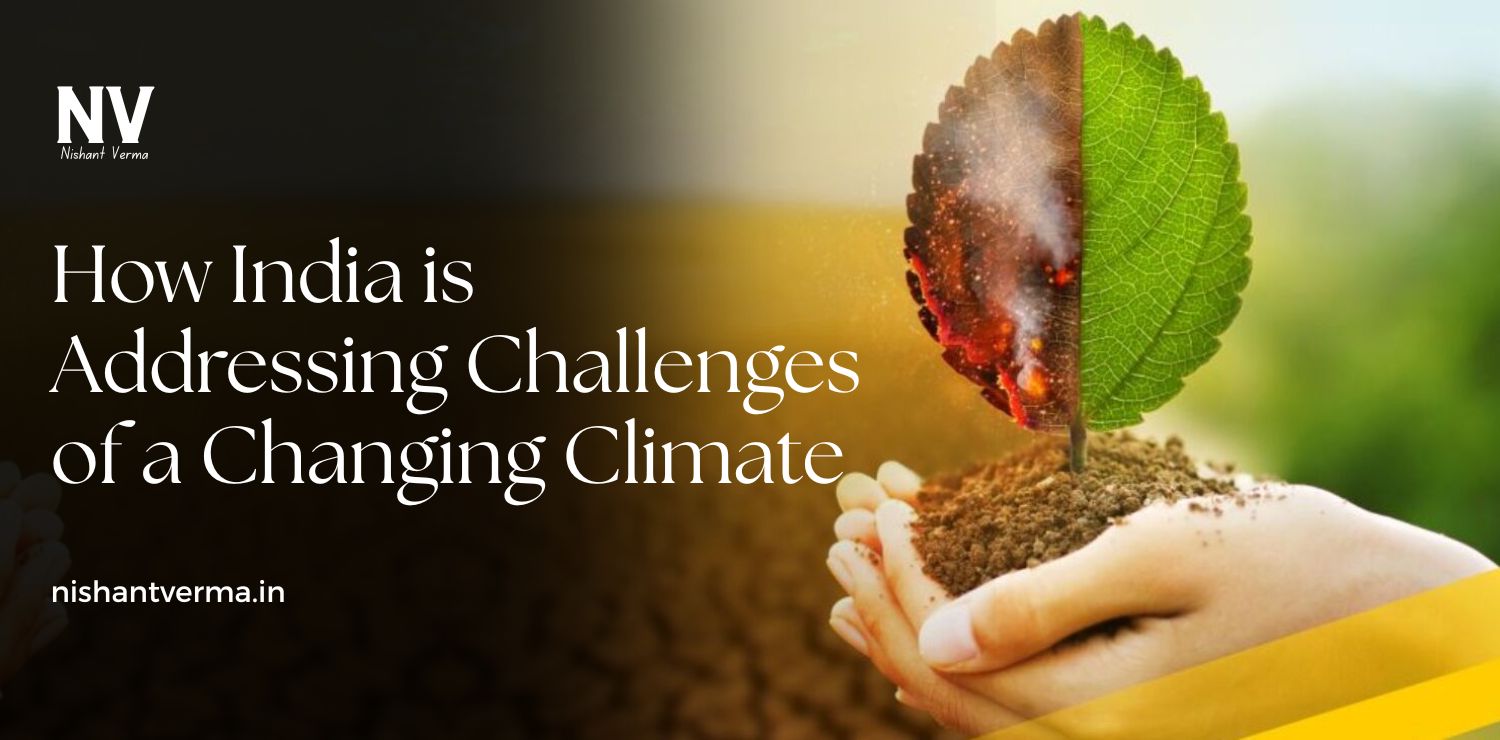India is a land of great diversity, where people from various ethnicities, cultures, and religions coexist harmoniously. The country’s rich tapestry of traditions, languages, customs, and food creates a unique blend that is admired around the world. However, this diversity can also lead to challenges, especially when it comes to issues of ethnic equality. Ethnic equality is the belief that all individuals, regardless of their ethnic background, should have equal rights, opportunities, and access to resources.
Ethnic Equality Month is an important occasion to raise awareness about the significance of equality among different ethnic groups and to celebrate the diversity that makes our nation special. This month serves as a reminder that despite our differences, we are all part of the same human family and deserve to be treated with dignity, respect, and fairness.
In this article, we will explore the importance of ethnic equality, the challenges faced by different ethnic groups in India, and how we can contribute to promoting a more inclusive society during Ethnic Equality Month and beyond.
What is Ethnic Equality?
Ethnic equality refers to the principle that people, regardless of their ethnic background, should have the same rights, opportunities, and access to resources. Ethnicity encompasses a person’s cultural identity, which is often tied to factors such as language, traditions, customs, and shared history. In a society where ethnic equality prevails, individuals from all backgrounds are treated with respect, and no group is discriminated against based on their ethnicity.
In India, ethnic diversity is a core feature of our society. People from different ethnic backgrounds – such as Hindus, Muslims, Sikhs, Christians, and others – live together, but unfortunately, ethnic inequalities and prejudices still exist in some parts of the country. Ethnic Equality Month is an opportunity for individuals, communities, and organizations to reflect on these issues and take proactive steps toward fostering unity, understanding, and mutual respect.
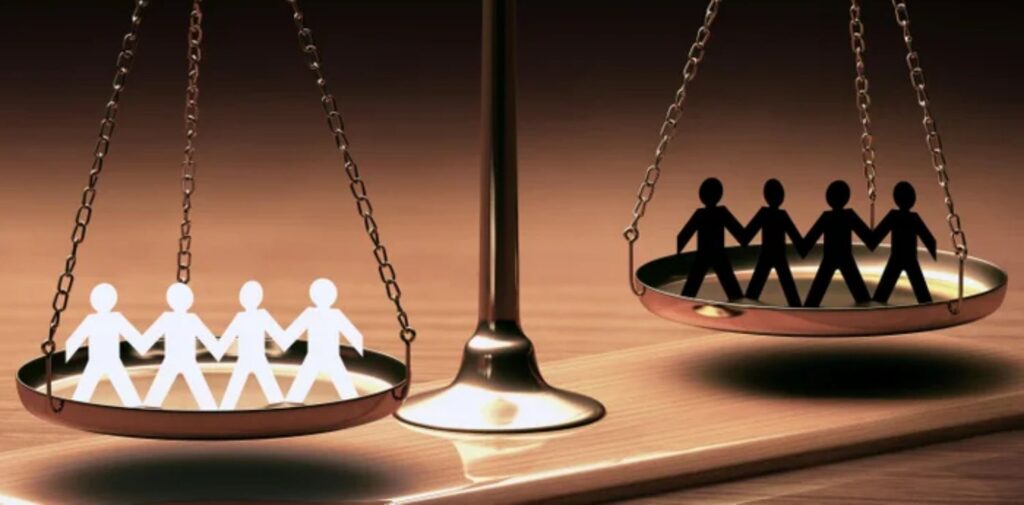
Ethnic Diversity in India
India is one of the most ethnically diverse countries in the world. According to estimates, there are over 2,000 ethnic groups in India, each with its own distinct culture, language, and customs. From the north to the south, east to west, the diversity is astounding, with multiple languages spoken, various traditions followed, and different foods enjoyed.
Some major ethnic groups in India include:
- Indo-Aryans: This group constitutes the majority of the population in India and includes people who speak languages such as Hindi, Bengali, Punjabi, and Gujarati.
- Dravidians: Found primarily in the southern states of India, including Tamil Nadu, Kerala, Karnataka, and Andhra Pradesh, this group speaks Dravidian languages like Tamil, Telugu, Kannada, and Malayalam.
- Adivasis (Tribal Groups): India is home to a large population of indigenous communities known as Adivasis. These groups have their own distinct languages, customs, and way of life.
- Religious Minorities: India is also home to religious minorities, including Muslims, Sikhs, Christians, Buddhists, Jains, and others. Each of these groups contributes to the rich cultural mosaic of the country.
Despite this diversity, there are instances where people from certain ethnic backgrounds face discrimination, marginalization, or prejudice. For example, tribal communities often face challenges in accessing education, healthcare, and other basic services. Similarly, individuals from religious minorities may encounter discrimination based on their faith.
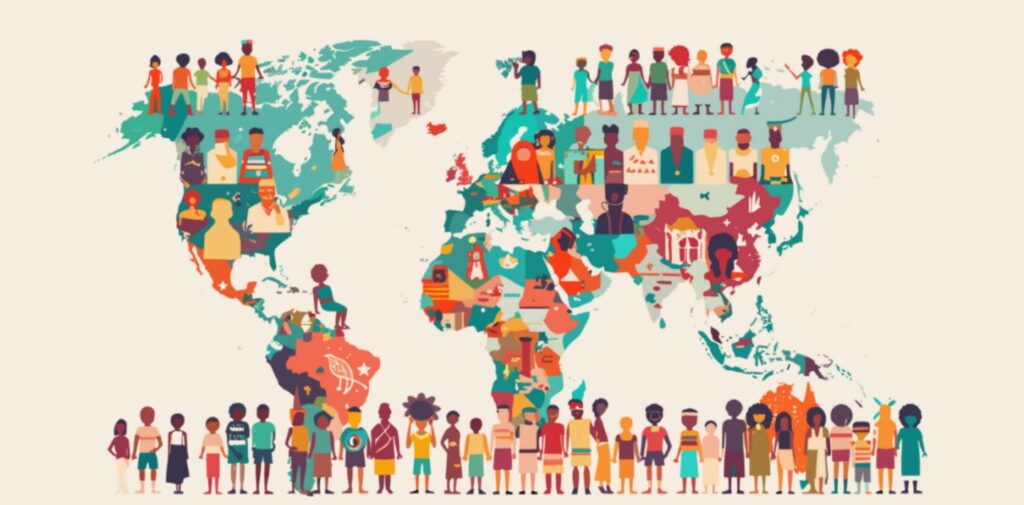
Challenges to Ethnic Equality in India
While India has made significant progress in promoting ethnic equality, challenges still remain. Some of the key issues that hinder the achievement of ethnic equality in India include:
1. Discrimination and Stereotyping
Discrimination based on ethnicity is still prevalent in many parts of India. Stereotypes, prejudices, and biases often lead to unfair treatment of individuals from certain ethnic groups. For instance, people from tribal communities, Dalits, and religious minorities may experience discrimination in social settings, education, and employment.
Stereotyping can also manifest in the media, where certain ethnic groups are portrayed in a negative light, perpetuating harmful biases and misconceptions. This creates barriers to ethnic equality and fosters division rather than unity.
2. Economic Inequality
Economic disparities based on ethnicity can also contribute to inequality. Historically, certain ethnic groups in India have been marginalized and excluded from economic opportunities. For example, many tribal communities live in poverty and have limited access to education, healthcare, and employment opportunities. Similarly, Dalits, who belong to the lower caste, often face discrimination in the workplace and struggle to access basic resources.
Addressing economic inequality is crucial to achieving ethnic equality, as it ensures that all individuals, regardless of their ethnicity, have equal opportunities to succeed.
3. Political Exclusion
Political representation is another area where ethnic inequality persists. While India has a diverse political landscape, certain ethnic groups remain underrepresented in government institutions. This lack of representation can lead to policies that do not fully address the needs and concerns of marginalized communities.
In some cases, political leaders may exploit ethnic divisions for personal or political gain, which can exacerbate tensions and lead to social unrest.
4. Violence and Hate Crimes
Unfortunately, ethnic and religious violence is still a reality in India. There have been instances of communal riots, caste-based violence, and attacks on religious minorities. These acts of violence are often fueled by deep-seated prejudices and a lack of understanding between different ethnic groups. Such violence not only undermines ethnic equality but also threatens the social fabric of the country.
Why Celebrate Ethnic Equality Month?
Ethnic Equality Month provides an opportunity to celebrate the diversity of India and promote understanding between different ethnic communities. It is a time to reflect on the progress we’ve made in achieving equality and acknowledge the work that still needs to be done.
Celebrating this month can:
- Raise Awareness: By highlighting the importance of ethnic equality, we can educate people about the value of diversity and the need for unity.
- Foster Respect and Understanding: Ethnic Equality Month encourages individuals to engage in dialogue, listen to others’ experiences, and learn about different cultures. This leads to greater empathy and respect among people of diverse backgrounds.
- Promote Inclusivity: This month reminds us to create spaces where everyone, regardless of their ethnic background, feels valued and included. By promoting inclusivity in our communities, workplaces, and educational institutions, we can build a more equitable society.
- Challenge Prejudices: Ethnic Equality Month serves as a reminder to challenge stereotypes, biases, and prejudices that may exist in our minds. By confronting these negative attitudes, we can work towards breaking down barriers and creating a more just and equal society.
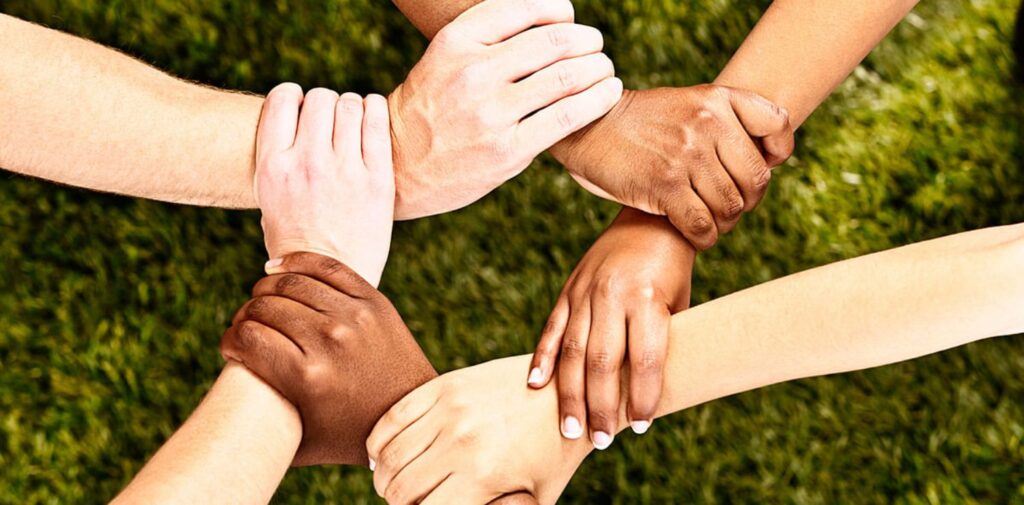
How Can We Promote Ethnic Equality in India?
While Ethnic Equality Month encourages reflection, it also calls for action. Here are some ways we can contribute to promoting ethnic equality in India:
1. Educate Ourselves and Others
Education is key to combating prejudice and fostering understanding. We must take the time to learn about the history, culture, and traditions of different ethnic groups in India. This knowledge helps break down stereotypes and promotes empathy.
Teachers, community leaders, and influencers can play a crucial role in educating the masses about the importance of ethnic equality. Schools and colleges should include topics related to diversity, inclusion, and human rights in their curricula.
2. Stand Against Discrimination
Whenever we witness discrimination based on ethnicity, it’s important to speak up and take a stand. Whether it’s at work, in social settings, or online, calling out discriminatory behavior helps create a culture of accountability. We must challenge harmful stereotypes and encourage others to treat people from all ethnic groups with respect.
3. Support Equal Opportunities
Promoting ethnic equality also involves ensuring that all individuals have access to equal opportunities, especially in areas like education, healthcare, and employment. It is essential to create policies and initiatives that provide marginalized communities with the resources they need to succeed.
Government and non-governmental organizations must work together to implement programs that provide financial support, vocational training, and employment opportunities for communities that have been historically excluded.
4. Foster Inter-Ethnic Dialogue
Promoting understanding between different ethnic groups requires open communication. Organizing cultural exchanges, community events, and inter-faith dialogues can help people from diverse backgrounds come together and learn from one another. These activities create a sense of belonging and unity, which is essential for achieving ethnic equality.
5. Celebrate Diversity
India’s strength lies in its diversity. We should take pride in our unique cultural identities and celebrate the differences that make us who we are. Festivals, food, music, and art are just a few ways to bring people together and celebrate diversity.
By embracing our differences, we not only promote ethnic equality but also foster a sense of national unity.
Conclusion
Ethnic equality is not just a goal—it is a fundamental right that every individual should have, regardless of their ethnic background. Ethnic Equality Month is an opportunity for us to reflect on the importance of inclusivity, diversity, and respect for all people. While India has made great strides in promoting ethnic equality, there is still much work to be done.
Let us take this month to renew our commitment to building a society where everyone, regardless of their ethnicity, is treated with dignity and respect. By educating ourselves, standing up against discrimination, and promoting equal opportunities, we can work together to create a more inclusive and harmonious India—one that celebrates its diversity and cherishes its unity.

